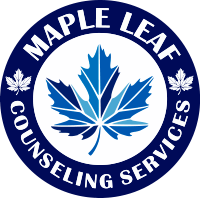Childhood trauma can have lasting effects on mental health into adulthood. Experiences like abuse, neglect, or witnessing violence may lead to anxiety, depression, and PTSD. Adults affected may struggle with trust, emotional regulation, and forming healthy relationships.
Unresolved childhood trauma can lead to coping mechanisms like substance abuse or self-harm. Recognizing the link between early experiences and later mental health issues is key to effective treatment and recovery. For more on childhood trauma therapy treatment and how it can help, contact Maple Leaf Counseling at 989.220.3060 or online.
Understanding the Impact of Childhood Trauma
Childhood trauma can deeply impact a person’s development and well-being, often leading to emotional, psychological, and physical issues that persist into adulthood. Understanding these early experiences is crucial for building resilience and recovery. Trauma during formative years can disrupt attachment, self-esteem, and emotional regulation, causing difficulties in relationships, work, and personal health.
Recognizing the symptoms of childhood trauma is essential for early intervention and support. These symptoms can manifest in various ways, often varying between individuals. Common signs include:
- Emotional distress – Anxiety, depression, or increased irritability.
- Behavioral changes – Difficulty with authority figures, withdrawal from activities, or engaging in risk-taking behaviors.
- Physical symptoms – Headaches, stomachaches, or unexplained chronic pain.
- Difficulty trusting others – Struggles in forming and maintaining healthy relationships.
- Flashbacks or intrusive thoughts – Recurrent memories of the trauma, nightmares, or obsessive thoughts.
- Hypervigilance – Heightened awareness of potential threats or danger in everyday situations.
Understanding these symptoms can empower caregivers and mental health professionals to provide supportive environments that promote healing and growth for those affected by childhood trauma. Left untreated, it can lead to a spectrum of challenges in adulthood, including chronic mental health issues, difficulty in forming intimate relationships, and struggles with self-worth and identity.
The Connection Between Childhood Trauma and Adult Mental Health Issues
The effects of childhood trauma often extend well into adulthood, significantly influencing an individual’s mental health. Research indicates that individuals who experienced trauma during their formative years are at an increased risk for developing various mental health issues, including anxiety, depression, post-traumatic stress disorder (PTSD), and borderline personality disorder. The unresolved emotional pain and maladaptive coping strategies established in childhood can create a psychological landscape fraught with challenges.
For example, individuals may struggle with trust and intimacy in relationships, leading to isolation or perpetuating cycles of unhealthy attachments. Additionally, the stress response system can remain hyperactive, making it difficult to manage stress and anxiety in adult life. Acknowledging this connection is crucial for fostering effective therapeutic interventions and support systems that can guide individuals toward healing and empowerment, ultimately breaking the cycle of trauma.
How Treatment Helps
Effective treatment can play a pivotal role in helping individuals overcome the effects of childhood trauma, enabling them to reclaim their lives and foster healthier relationships. Therapy provides a structured environment where individuals can explore their past experiences, process their emotions, and develop coping strategies tailored to their unique needs. The benefits of treatment can include:
- Understanding the impact of trauma on thoughts and behaviors can empower individuals to make positive changes.
- Therapeutic interventions can facilitate the expression and processing of repressed emotions, reducing feelings of distress and confusion.
- Individuals learn healthy ways to manage stress and anxiety, steering away from maladaptive behaviors that developed in response to trauma.
- Therapy can support individuals in building trust and intimacy with others, enhancing their social connections and support systems.
- Treatment often helps individuals regain a sense of agency in their lives, fostering a more positive outlook and greater resilience.
- Addressing the underlying issues related to childhood trauma can lead to reductions in symptoms of anxiety, depression, and PTSD, contributing to overall well-being.
Engaging in treatment provides a pathway for individuals to move beyond their past, equipping them with the tools necessary for personal growth and a healthier future.
Overcome Childhood Trauma with Support from Maple Leaf Counseling — Contact Us
At Maple Leaf Counseling, we understand the complexities of overcoming childhood trauma and offer a compassionate space for healing. Our experienced therapists are dedicated to helping individuals unpack their past, develop coping strategies for their present, and foster resilience for a brighter future. By tailoring therapeutic approaches to each person’s unique journey, we empower people to transform their lives and build healthier relationships. Call 989.220.3060 or contact Maple Leaf Counseling online today.




